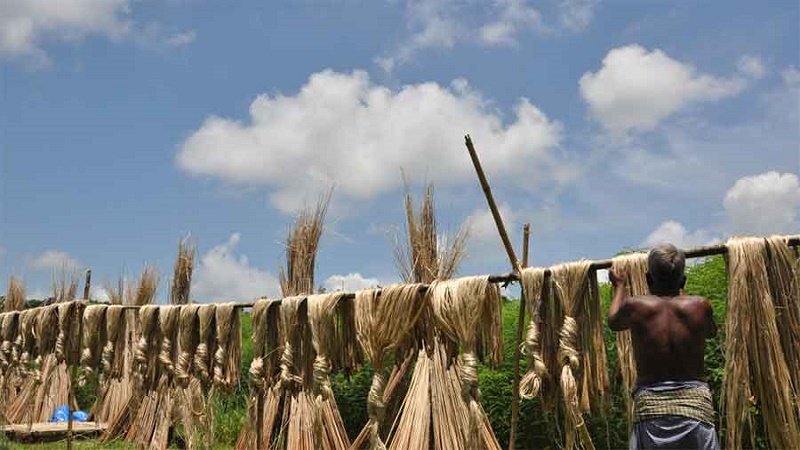Mills cite dip in production following Cyclone Amphan for request to centre
Arkamoy Datta Majumdar, Calcutta: Jute mill owners in Bengal have written to the Union government seeking permission to use raw jute imported from Bangladesh to manufacture bags they sell to central agencies.
The unprecedented demand is the fallout of a dip in jute production in Bengal following Cyclone Amphan.
“The industry will have to survive the effects of the cyclone this year. The yield has been adversely affected and will be lower by at least 20 per cent than what was estimated earlier. We have thus asked for this permission from the Centre so that we can meet the demand for jute bags,” a source at the Indian Jute Mills Association, a lobby group of mill owners, said.
Mill owners in their letter — written on Tuesday and addressed to the secretary of Union ministry of textiles, Ravi Capoor — have said use of imported raw jute has become inevitable in the present situation.
According to the letter, the IJMA had estimated a harvest of 75 lakh bales of raw jute this year. A bale is equivalent to around 180kg. But, post-Amphan, there has been a shortfall, which has also inflated the price of raw jute.
On the other hand, mill owners are facing an all-time high demand for jute bags this year. Although no official estimate was available, a source at the office of Jute Commissioner said the demand may go up to 24 lakh bales of jute bags to pack food grains grown in the kharif season alone.
“So, import is a must and we should be allowed to use the raw jute to make the bags that we supply to agencies like the Food Corporation of India,” said a source adding that the mill owners were expecting a favourable decision by the Centre.
It has been mandated by the Jute Packaging Material Act that jute bags to be purchased by the Union government agencies for the packaging of food grains — rice, wheat and sugar — must be made of home-grown raw jute. The provision was intended to protect the interests of the farmers engaged with the jute cultivation. Hence, the mill owners’ plea to the Centre for permission to import jute from Bangladesh is unprecedented.
Jute is mainly grown in India and Bangladesh.
Abhijit Palit, the secretary of the Jute Balers Association, said use of imported raw jute for the manufacture of packaging bags would hurt the farmers.
“The rate has gone a bit high towards Rs 5,300-5350 a quintal, which is normally not more than Rs 4,000 a quintal during normal times. This extra cash has proved to be useful for the farmer,” he said.
Raghavendra Gupta, the chairman of the IJMA, however didn’t accept this logic. “This year, the farmers are already getting 12-13 per cent more than the minimum support price… Also, compared to the quality of jute being sold, the farmer is being well remunerated,” he said.

